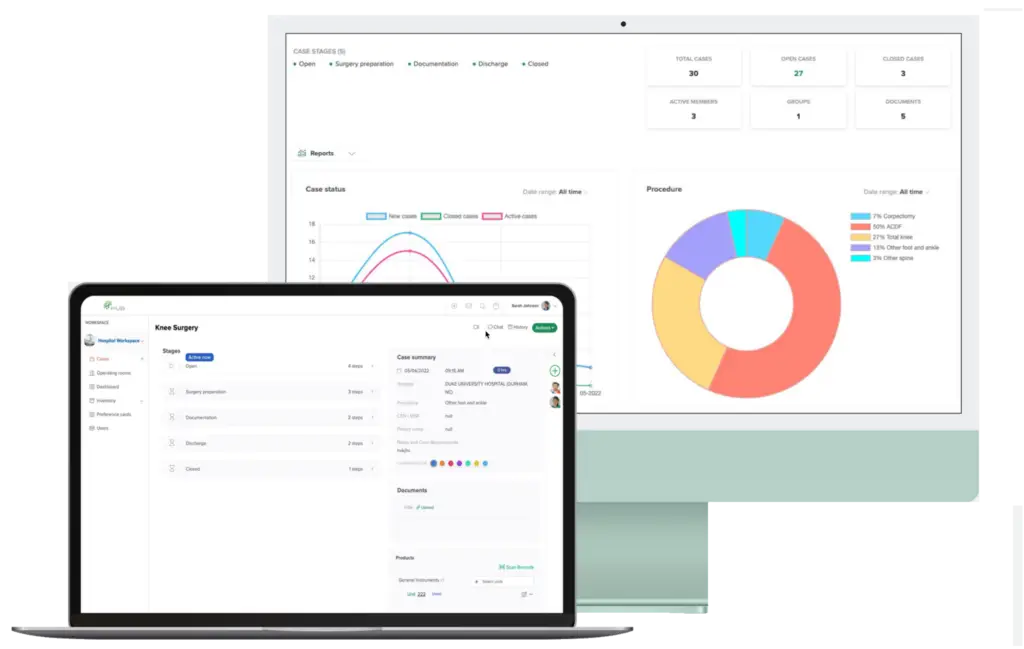As healthcare continues to evolve, the concept of transforming the home into a healthcare hub is gaining traction. The COVID-19 pandemic accelerated the adoption of home-based care, but healthcare systems have only scratched the surface of utilizing the home environment for comprehensive health and wellness. This post explores the challenges and opportunities in making this transformation, drawing insights from a recent CES 2024 panel discussion and highlighting the role of technology and consumer engagement.

The Current State of Home Healthcare
Hospital at Home: A Proven Strategy
The Hospital at Home (HAH) model has demonstrated significant benefits, including improved clinical outcomes, reduced rehospitalizations, and decreased healthcare costs. Supported by a waiver for Medicare reimbursement from the Centers for Medicare & Medicaid Services (CMS), this model involves a combination of virtual and in-person care. More than 300 health systems in the U.S. are participating in this program, highlighting its growing acceptance and effectiveness.
Beyond Acute Care
While the HAH model focuses primarily on acute care, the potential for using the home as a health and wellness hub extends far beyond this scope. According to Leslie Saxon, MD, Executive Director of the USC Center for Body Computing, the future of home healthcare lies in “life care”—a holistic approach that views patients as consumers and leverages smart home devices and technology to gather and utilize data effectively.
Challenges in Transforming Homes into Healthcare Hubs
Data Collection and Utilization
Collecting and using data from home-based devices remains a significant challenge. Healthcare organizations need to develop the science, technology, and behavioral health expertise to gather and interpret this data. Hon Pak, Vice President and Head of the Digital Health Team at Samsung Electronics, emphasizes the need for a better understanding of patients’ life stages and the integration of lifestyle data with chronic disease management.
Interoperability and Standards
The interoperability of home-based devices and smart technology is crucial for successful data sharing with healthcare organizations. Ed Miller, Chief Technology Officer for the Center of Medical Interoperability, points out that while the technology exists, the industry lacks the standards and pathways to facilitate seamless data exchange. Developing these standards is essential for realizing the full potential of home-based healthcare.
Consumer Engagement
Healthcare systems are adept at delivering medical care but often fall short in engaging with consumers to manage health and wellness. Saxon highlights the “profound cultural drive” needed to shift from traditional medical care to a consumer-focused model. Disruptors like Amazon and Apple excel at reaching consumers in their homes and can serve as valuable partners in this transformation.
Opportunities for Innovation
Partnering with Disruptors
Collaboration with companies that understand consumer behavior and technology integration is vital. Jared Conley, MD, PhD, MPH, Associate Director of the Healthcare Transformation Lab at Massachusetts General Hospital, underscores the need for partnerships with digital health disruptors. These collaborations can help healthcare organizations leverage innovative solutions to enhance patient care and engagement.
Emphasizing Prevention
The ultimate goal of home-based healthcare is prevention. By integrating data from smart home devices, healthcare providers can proactively manage health and wellness, reducing the incidence of chronic diseases. This requires a paradigm shift in how healthcare organizations approach patient care, moving from reactive to preventive strategies.
Enhancing Patient Experience
Improving the patient experience is critical for the success of home-based healthcare. Consumers expect the same level of convenience and service they receive from companies like Amazon and Apple. Healthcare organizations must prioritize user-friendly interfaces, seamless communication, and personalized care to meet these expectations.
Conclusion
Transforming homes into healthcare hubs presents both challenges and opportunities. By addressing issues related to data collection, interoperability, and consumer engagement, healthcare organizations can unlock the full potential of home-based care. Partnering with technology disruptors and focusing on preventive care will be key to this transformation.

How HUB Healthcare Can Help
HUB Healthcare offers a comprehensive solution designed to enhance communication in healthcare, streamline care coordination, and improve overall workflow efficiency. Our platform includes features such as medical case management software, healthcare document management, and healthcare analytics to ensure that all aspects of patient care are optimized. By leveraging HUB Healthcare’s robust tools, organizations can reduce workflow bottlenecks, automate repetitive tasks, and facilitate better collaboration among healthcare providers. This not only improves work quality but also enhances patient outcomes, making HUB Healthcare an essential partner in achieving healthcare excellence. HUB Forum





